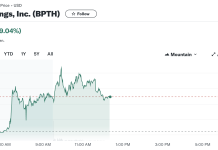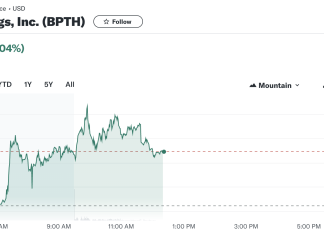Sorrento Therapeutics Inc. (NASDAQ: SRNE) has entered an option agreement with the Texas A&M University System for exclusive rights to the IP covering highly potent main protease inhibitors against SARS-CoV-2.
Sorrento enters exclusive agreement for SARS-CoV-2 candidate
The company’s wide-ranging portfolio of clinical and preclinical treatment candidates targeting SARs-CoV-2, including new and developing COVID-19 viral types of concern, has been bolstered by this recent collaboration. In addition, Sorrento has an exclusive option to license patents covering MPro inhibitor therapeutic candidates under the terms of the agreement. MPro is a COVID-19 enzyme capable of catalyzing essential proteins formation for viral reproduction, according to TAMUS’s Dr. Wenshe Ray Liu.
CEO and Chairman of Sorrento Dr. Henry Ji said, “We are excited to be collaborating with Dr. Liu and his team at Texas A&M and look forward to advancing the development of these novel drug candidates to address COVID-19, and a multitude of other respiratory viruses. This agreement further strengthens our dynamic COVID-19 product portfolio and is well aligned with our overall strategic plan to combat COVID-19 through a combination of potent small molecules and antibodies, cellular therapies and vaccines.”
Sorrento releases encouraging SOFUSA results
Recently the company announced encouraging patient case results on the lymphatic delivery of Enbrel utilizing the Sofusa Lymphatic Delivery System (SOFUSA) that has been submitted for preprint as CASE REPORT. Enbrel’s lymphatic delivery using SOFUSA attains enhancements in rheumatoid arthritis disease activity values Enbrel subcutaneous injection, non-responsive patients.
Lead study investigator Roel Querubin said, “Our hypothesis for this study was that delivering Enbrel directly into the lymphatics would improve clinical response. While this is only the first patient, the improvement is quite remarkable and suggests that delivering therapy directly into the lymphatics may be one of the factors associated with improved response to biologic therapies delivered systemically. It was also quite interesting to see the correlation between lymphatic flow and clinical response. We are looking forward to enrolling more patients in this study.”















